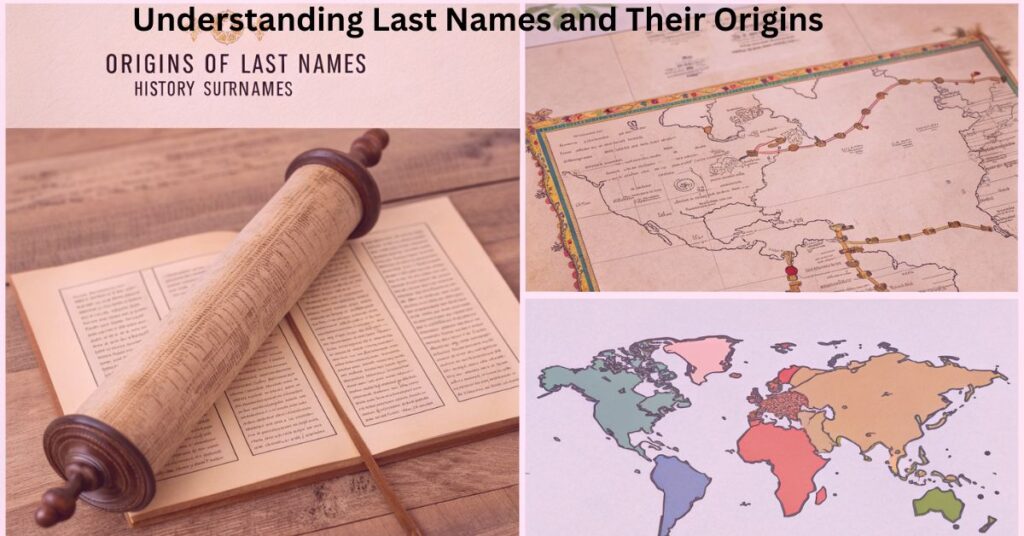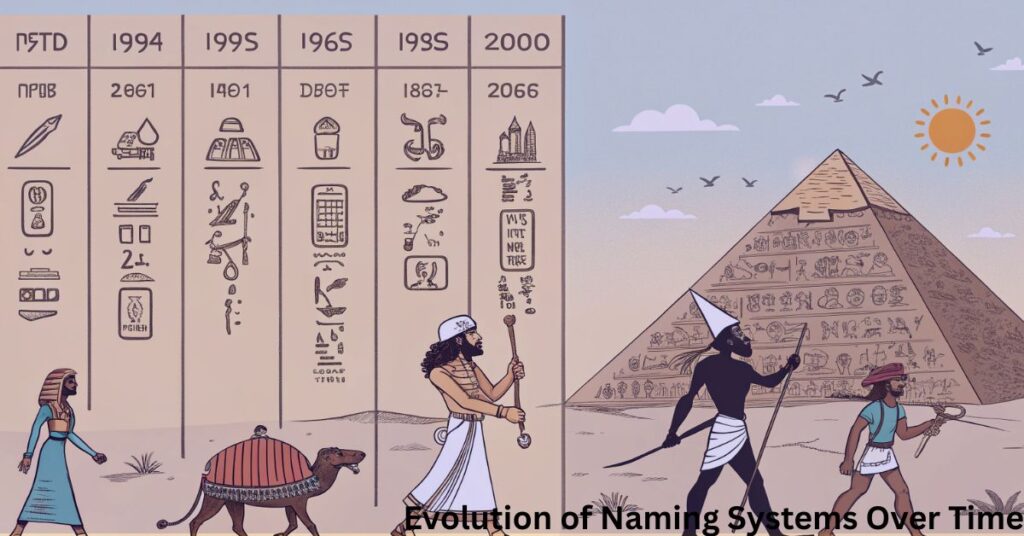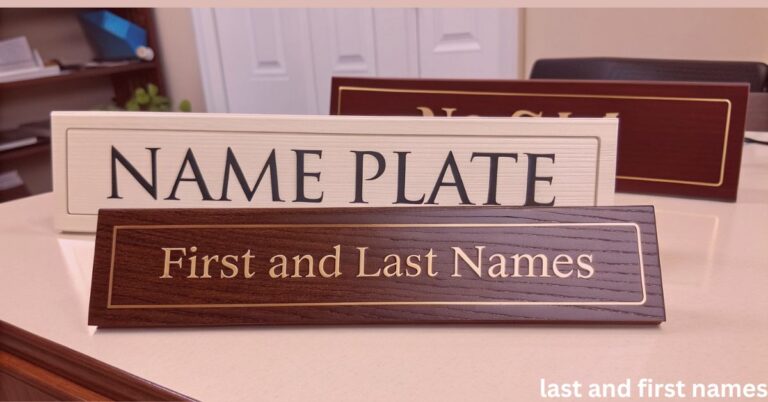Discover the complete guide to understanding last and first names, including their origins, cultural differences, modern trends, and practical usage. This in-depth article explores how first names define personal identity while last names reflect family lineage, traditions, and heritage. Learn how naming conventions vary across cultures, why name pairing matters, and how digital identity has elevated the importance of last and first names in today’s world.
Ideal for parents, writers, researchers, and professionals, this SEO-optimized article uses LSI and NLP keywords to ensure clarity, relevance, and easy comprehension. Whether you’re naming a baby, developing characters, or simply curious about your own name, this guide offers valuable insights and practical tips. Also included are common mistakes to avoid, legal aspects of name changes, and FAQs about choosing and using names correctly.
Embrace the significance of names and unlock the power behind the perfect combination of last and first names. Names play a vital role in shaping human identity and social interaction. From ancient civilizations to modern digital platforms, names specifically last and first names have served as personal identifiers, social tools, and cultural symbols. This comprehensive guide explores the structure, cultural significance, historical evolution, and modern trends surrounding last and first names.
What Are First Names and Why Do They Matter?
A first name, also referred to as a given name, is typically assigned at birth and used to identify a person individually. It’s the name you’re likely called by family, friends, and colleagues.
Significance of First Names:
- Represents individuality and identity
- Reflects cultural values, traditions, and beliefs
- Often chosen with care and meaning by parents or guardians
- Used for personalization and recognition in everyday life
Examples of Common First Names:
- Western: Emma, Michael, Lily, Daniel
- Middle Eastern: Fatima, Ahmed, Noor, Yusuf
- Asian: Haruki, Mei, Arjun, Priya
- African: Kwame, Amina, Zola, Obi
Parents often choose first names based on personal taste, family history, religious values, or even trending pop culture. For instance, the name “Elsa” rose in popularity after Disney’s Frozen.
Understanding Last Names and Their Origins

A last name, or surname, is usually inherited and signifies family lineage. It’s often shared by relatives and reflects one’s ancestral roots.
Origin of Last Names:
Historically, last names were derived from:
- Occupations (e.g., Miller, Carpenter)
- Locations (e.g., Hill, London, Woods)
- Characteristics (e.g., Short, Brown)
- Patronymics (e.g., Johnson = “son of John”)
Global Examples
- Spanish: García, Martínez, Rodríguez
- Chinese: Li, Wang, Zhang
- Indian: Patel, Sharma, Singh
- European: Müller, Schneider, Novak
These names evolved over time as societies expanded and needed systematic ways to differentiate individuals.
Cultural Diversity in Last and First Names
Naming practices differ significantly around the globe, making understanding cultural naming conventions essential.
Western Naming Order
In countries like the US, UK, Canada, and Australia:
- First Name + Middle Name (optional) + Last Name
- Example: Sarah Elizabeth Carter
Eastern Naming Order
In China, Korea, and Japan:
- Last Name precedes First Name
- Example: Li Wei (Li = last name, Wei = first name)
Arabic Naming Tradition
- Includes personal name, father’s name, and grandfather’s name
- Example: Omar bin Ahmed bin Khalid
Spanish and Portuguese Naming:
- Often include two surnames (one from each parent)
- Example: María Isabel López García
African and Indigenous Traditions
- Many African cultures use names to tell stories, indicate birth order, or express circumstances of birth.
- Example: “Kwame” (Ghanaian for “born on Saturday”)
Understanding these cultural patterns helps avoid confusion in international communication, travel, and official documentation.
Evolution of Naming Systems Over Time

In ancient times, people were often identified by single names. As populations grew, societies developed multi-name systems to distinguish individuals.
Timeline of Evolution
- Single Names: Common in small communities
- Descriptive Additions: John the Blacksmith, Mary of York
- Hereditary Surnames: Passed through generations
- Legal and Institutional Records: Standardized naming conventions
- Modern Digital Identities: Influence from social media and global networking
Today, the structure of last and first names has become more standardized, though individual choices still vary based on culture, religion, and personal preference.
Why Are First and Last Names Important?
The structure of last and first names isn’t just for show. It plays a crucial role in:
- Legal identification (IDs, passports, licenses)
- Educational records
- Healthcare systems
- Employment and payroll
- Digital footprints and branding
Without this structure, managing records, verifying identities, or even performing basic social interactions would be chaotic.
Modern Trends in Last and First Names
Naming trends are constantly evolving, shaped by cultural shifts, celebrity influence, and changing societal values.
Popular First Name Trends
- Gender-neutral names: Avery, Jordan, Sky
- Nature-inspired names: Sage, River, Aurora
- Vintage revivals: Hazel, Theodore, Mabel
Surnames as First Names
- Taylor, Madison, Cooper, Kennedy
Using last names as first names has gained popularity due to their modern and unisex appeal.
Hyphenated Last Names
- A symbol of equality or blended family identity
- Example: Martinez-Garcia, Smith-Wilson
Creative Spellings and Unique Names
Parents are also opting for rare or customized names to stand out, particularly in the digital age.
Pairing Last and First Names: Best Practices
When choosing or creating names, consider the harmony between the first and last name. A well-paired name:
- Sounds fluid and balanced (e.g., Olivia Bennett)
- Avoids rhyme or redundancy (e.g., Ken Penn may sound awkward)
- Is easy to spell and pronounce
- Has positive associations
Things to Avoid
- Unintentional jokes or puns (e.g., Ben Dover)
- Cultural misappropriation
- Offensive translations in other languages
Name matching tools and apps like Nameberry, Behind the Name, and BabyNames.com can help test combinations for rhythm and cultural appropriateness.
Last and First Names in Professional and Digital Spaces
With the rise of the internet and social media, last and first names have become more than just identification they are branding tools.
Online Identity
- Your name appears on LinkedIn, email, Instagram, and more
- Influences search engine visibility
- Shapes how employers, clients, or peers perceive you
Some people use middle initials, pseudonyms, or abbreviations to build a memorable and unique digital presence.
Legal Aspects of Names
Changing names legally is possible in most jurisdictions, but the process varies.
Reasons for Name Changes
- Marriage or divorce
- Gender transition
- Religious conversion
- Personal branding or identity choice
Documents Affected
- Passport
- National ID or Social Security Card
- Bank Accounts
- Tax Records
It’s important to follow legal procedures to avoid confusion and ensure consistency across records.
Famous Examples of Iconic Name Pairings
Some names become iconic because of their pairing:
- William Shakespeare – Historic and literary impact
- Barack Obama – Political power and global recognition
- Oprah Winfrey – Branding and media influence
- Malala Yousafzai – Advocacy and human rights
- Elon Musk – Tech innovation and entrepreneurship
These names are now brands in themselves, proving the power behind well-known last and first names.
Fun Facts About Names
- The most common first name globally is Muhammad
- Smith is one of the most common last names in English-speaking countries
- Icelanders use a patronymic system rather than family surnames
- In some Native American tribes, names change throughout life to reflect personal growth
Common Mistakes When Using Last and First Names
Incorrect name order in forms (especially internationally)
Typos or mispronunciations leading to identity errors
Ignoring diacritics or cultural spelling variations
Inconsistent usage across social and legal platforms
Overlooking name meanings that may offend in certain languages
Choosing Names for Characters, Brands, or Pets
Writers, marketers, and pet owners also carefully choose last and first names based on:
- Alliteration (e.g., Peter Parker)
- Personality traits
- Emotional impact
- Cultural tone
Apps like Character Name Generator, Fantasy Name Generator, and NameMesh are helpful for this purpose.
FAQs About Last and First Names
What is the key difference between a last name and a first name?
A first name is your personal identifier given at birth, while a last name is typically inherited from your family and shared with relatives.
Can I use a last name as a first name?
Yes, many last names like Carter, Quinn, and Emerson are now used as stylish first names, especially for their uniqueness and gender-neutral appeal.
Is it legal to change your name?
Yes, you can legally change your first or last name for various reasons, including marriage, divorce, gender identity, or personal preference, following the legal procedures in your country.
How do different cultures format last and first names?
In Western cultures, it’s First Name + Last Name, whereas in East Asian cultures, it’s often Last Name + First Name. Other cultures include multiple surnames, parental names, or clan names.
How can I choose a good combination of last and first names?
Choose names that flow well, are easy to pronounce, and reflect your values or background. Use online name pairing tools for help, and always double-check meanings in different cultures or languages.
Conclusion
In every society and language, names hold power. From ancient texts to modern IDs, last and first names are at the core of who we are. They convey meaning, heritage, personality, and identity. As we embrace a globalized world with multicultural influences, the significance of names continues to grow. Understanding the origins, cultural variations, and proper use of last and first names enhances communication, boosts personal branding, and fosters respect for diversity. Whether you’re naming a child, writing a novel, creating a username, or building a resume choose names with thought, purpose, and respect.
Also Read
Makavelis: The Evolution of a Cultural and Philosophical Movement
Anime Girlfriend Names: Ultimate Guide to Cute, Cool, and Meaningful Picks
Names for Leos: Best Baby Name Ideas for This Bold Zodiac Sign

